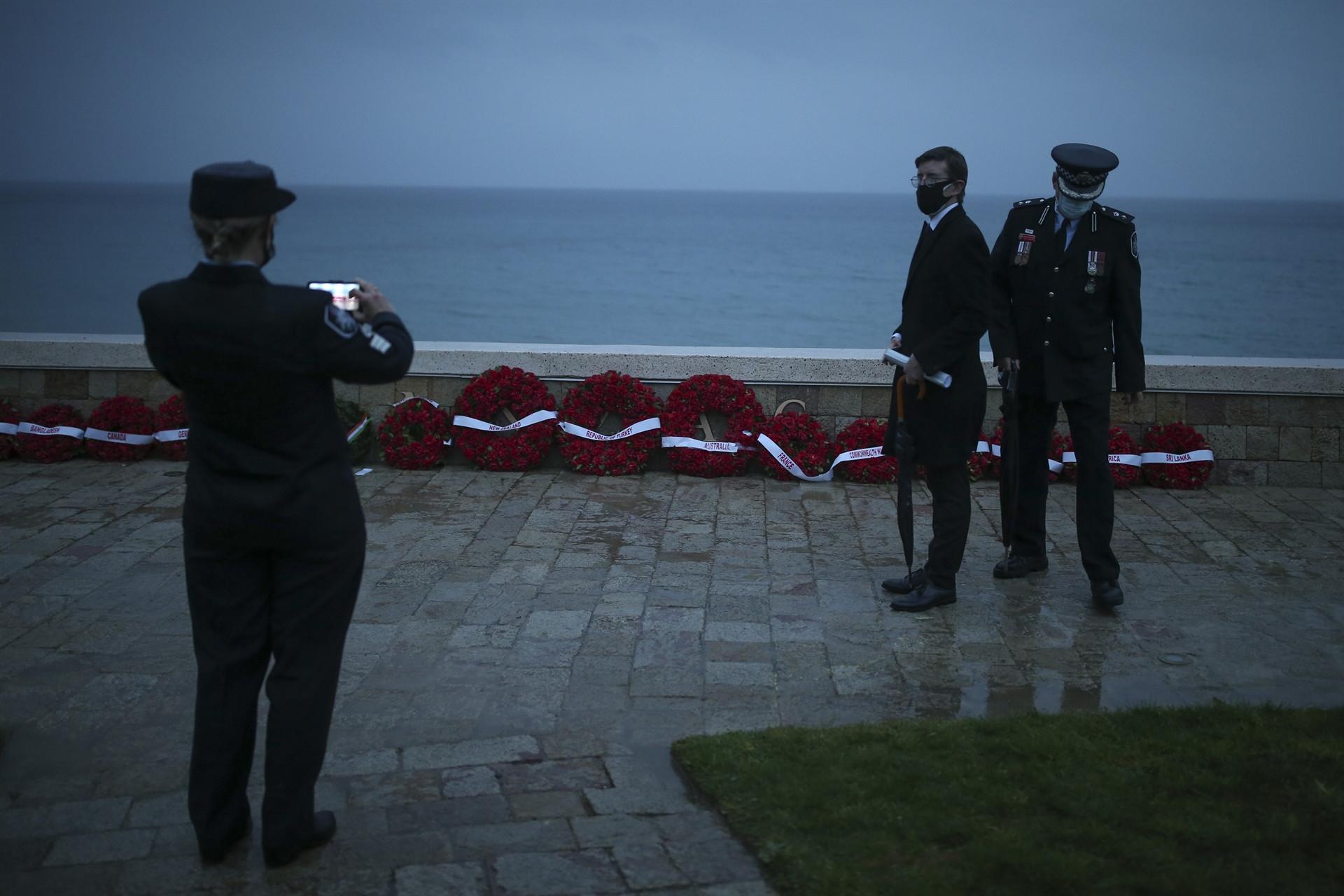
A ceremony was held in western Çanakkale province early on April 25 to commemorate the 106th anniversary of the landing of foreign troops on Turkish soil during World War I.
A wreath-laying ceremony with limited participants instead of a dawn service, due to coronavirus measures, was held with the participation of thousands of Australians and New Zealanders coming to commemorate their ancestors every April 25.
The ceremony was started with speeches by Australian Ambassador to Ankara Marc Innes-Brown and New Zealand Ambassador Wendy Hinton at 5.30 a.m. local time.
Infantry Staff Lieut. Col. Anıl Aksoy read a letter sent by Mustafa Kemal Atatürk to families of foreign soldiers who were killed in the Gallipoli Campaign.
Eceabat District Governor Mustafa Çiftçiler laid a wreath during the ceremony.
The program was completed after the reading of the Turkish, Australian, and New Zealand national anthems.
The ceremony was attended by the Ministry of Culture and Tourism Gallipoli Peninsula Historical Site President Ismail Kasdemir, British Ambassador Dominick Chilcott, Irish Ambassador Mcguinness and French Consul General in Istanbul Olivier Gauvin.
Turkey’s president on April 25 commemorated the martyrs of the Çanakkele Land Battles.
“The spirit of Canakkale, which brought the epic struggle of our nation – which has lived in freedom since the beginning of time – to victory for independence, forged a monumental legacy for future generations,” said President Recep Tayyip Erdoğan in a statement.
“Our nation, which even under the most difficult conditions come together in mobilization, puts forth today that it will not allow any occupation at the risk of its country or flag,” he added.
He stressed that the rights and sanctification of the Turkish nation, whose history is full of glorious victories, will resolutely continue to be protected, the spirit of Canakkale will be kept alive, and the country will be carried to the future with renewed strength.
The duty of coming generations is to protect the message of independence and future engraved in Canakkale with blood, soul, determination and courage on the stones, land, and sea, he said.
On April 25, 1915, nine months into World War I, Allied soldiers landed on the shores of the Gelibolu peninsula. The troops were there as part of a plan to open Çanakkale Strait on Turkey's Aegean Sea coast to Allied fleets, allowing them to threaten the then-Ottoman capital, Istanbul.
The Allied Forces, however, encountered strong and courageous resistance from the Turks and the campaign turned out to be a costly failure. Tens of thousands of Turkish nationals and soldiers died, along with tens of thousands of Europeans, plus 7,000 - 8,000 Australians and nearly 3,000 New Zealanders.
Victory against the Allied forces boosted the morale of the Turkish side, which went on to wage a war of independence between 1919 and 1922 and eventually formed a republic in 1923 from the ashes of the old empire.
April 25 is also known as ANZAC Day in Australia - a significant national holiday that honors the Australian and New Zealand Army Corps (ANZAC) who fought and died in Çanakkale on Turkey's western coast in 1915. Australia and New Zealand commemorate the event as Gallipoli.